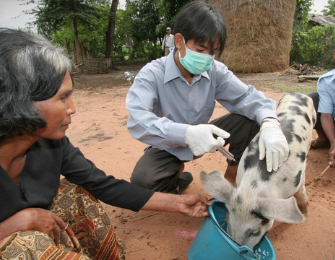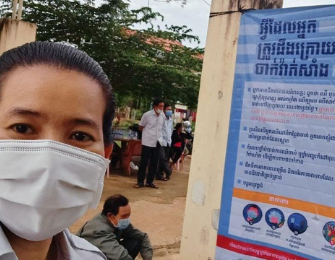Australia is strengthening its commitment to the prevention, surveillance and response to infectious diseases across the Indo-Pacific through a strategic partnership with the Doherty Institute. Over the next four years, our partnership will focus on workforce development, policy support, and systems strengthening, and will specifically target laboratory strengthening, genomic surveillance, antimicrobial resistance (AMR), and data for decision making.
The partnership consists of five priority work areas: COMBAT-AMR, SPARKLE, eLABorate, BRDIGe, and HiT3. COMBAT-AMR will use a One Health approach to address the challenges of AMR through infection prevention and control, antimicrobial stewardship, and laboratory diagnosis and surveillance. SPARKLE will use a participatory approach to build capacity in data analysis and interpretation to inform policy and practice for infectious disease and control. The eLABorate initiative will strengthen laboratory capacity and systems for infectious disease diagnoses, with a focus on molecular and serological testing capabilities. BRIDGe will support equitable access to – and implementation of – pathogen genomics. And HiT3 will provide technical support to incorporate Hepatitis B prevention into programs for the triple elimination of mother-to-child transmission of HIV, syphilis, and Hep B.
Together, these initiatives will bolster our region’s ability to manage and respond to infectious diseases, improving health outcomes for all.




